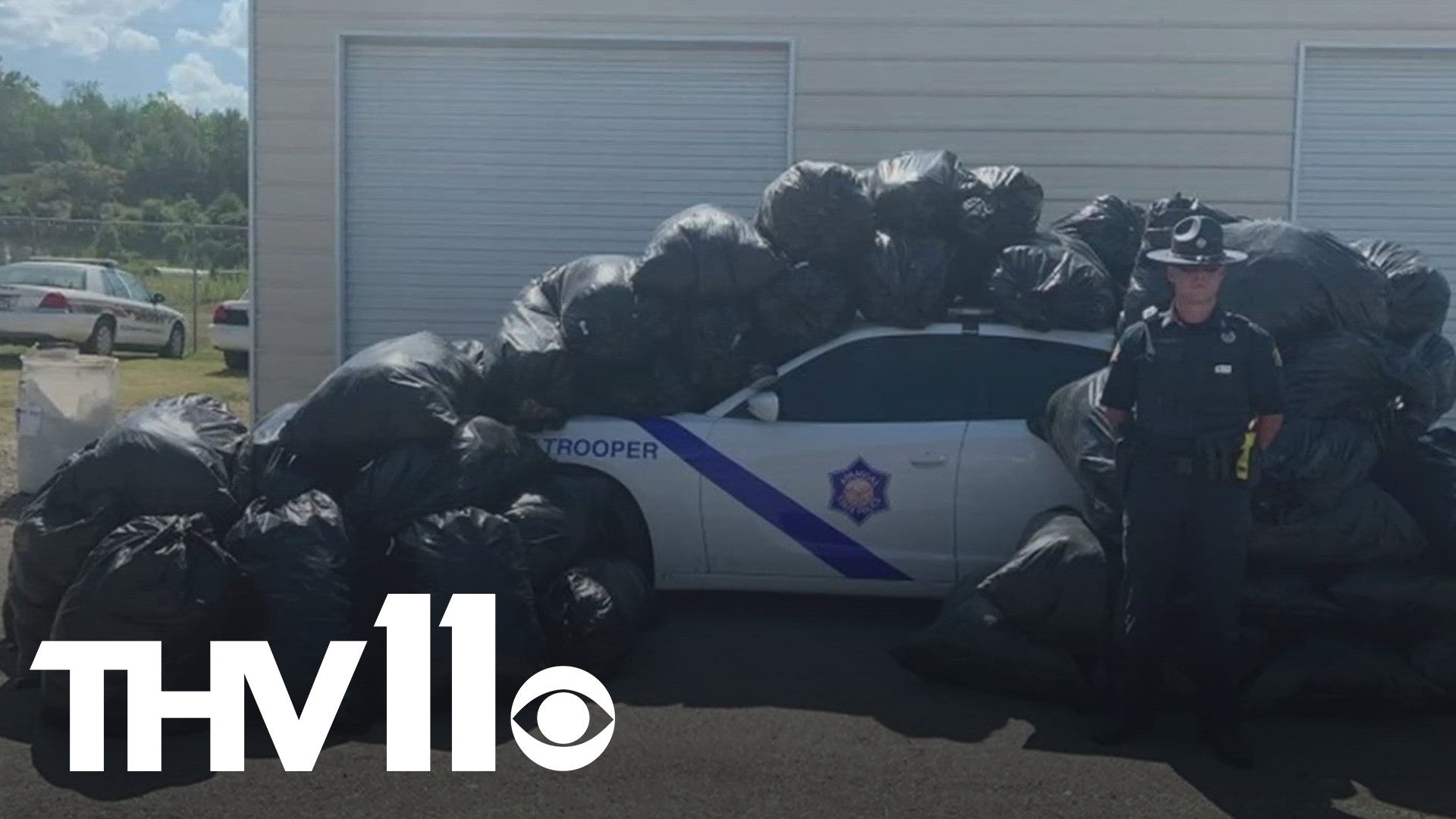ARKANSAS, USA — Thousands of miles— thousands of pounds of illegal drugs. That's the reality that Arkansas State Police face as they patrol our interstates, with troopers increasingly busy as they try to stop narcotics from moving along our busiest roadways.
"With I-40, I-30, I-55, we have a lot of narcotics that traverse the state," said Col. Mike Hager, state secretary of public safety and commander of the Arkansas State Police. "It's more than 7,000 pounds of marijuana, more than 300 pounds of cocaine, 34 pounds of fentanyl. I mean, the numbers are staggering."
Col. Hager has been leading the state police since early 2023 when he was appointed by Gov. Sarah Huckabee Sanders to her cabinet. He came up through the ranks, including patrolling highways in Central Arkansas in the 1990s.
His experience has led to him understanding certain constants when it comes to how drugs move through our state.
"As a general rule, we see product and narcotics, going north and east, and we see money coming back, south and west," he said.
That's backed up by the results of a major federal drug operation that wrapped up in May.
"Operation Last Mile" tracked fentanyl that came from two Mexican cartels, across the southern border and then up through Arkansas, bound for the East Coast and upper Midwest.
The Drug Enforcement Administration (D.E.A.) explained that the interdiction designed to stem the drug flow on that "last mile" to city streets yielded about 3,337 arrests, seized 44 million fentanyl pills and 6,500 pounds of fentanyl powder.
While those numbers are staggering, what terrifies Hager, is how dangerous even small amounts can be, including two busts that were made this summer in the weeks after the end of that federal sting.
One on June 5 along I-40 outside of North Little Rock turned up 11.83 lbs. Two months later, members of Troop J stopped a vehicle with 22 lbs. of the painkiller on the same interstate between Plummerville and Morrillton.
"The thing that scares me the most is that people just don't know what they're getting," the colonel said. "I think a lot of people believe that if they take a pill like hydrocodone or something like that, that it's safe as long as they don't take too much. And that's just absolutely not the case. I mean, you take one pill, and it's not been processed correctly or whatever, and it's lethal."
While fentanyl is known for being so lethal, troopers have found themselves very busy pulling over people with large amounts of marijuana. The busts go beyond small, possibly legal amounts for personal use.
Col. Hager said thousands of pounds have been traveling the interstates out of Oklahoma where an overabundance of growers practically spills over the state line.
Interdictions are frequent, including on Nov. 5 when a trooper stopped an SUV on I-40 that was heading east and, with the help of a drug-sniffing dog, found 66 pounds of marijuana inside two suitcases.
It's a product in search of a market, and controlling that illegal market is turning lethal.
"A lot of our violence that we experience here in Central Arkansas, it's over marijuana freight, and it's because it's so lucrative," said Col. Hager, whose time on patrol coincided with gang wars in Little Rock. "We're finding guns and we're finding drugs. You'll find crack cocaine occasionally, but more times than not, it's high-grade marijuana. That's what a lot of the conflicts that we have with people right now."
Col. Hager insists his troopers know the difference between traffickers and medical users, saying the signs are obvious to trained officers. And Hager hopes, that while we may not associate state troopers with helping keep drugs off "the streets," their work on streets where the speed limit is 65+ is just as vital.
"They're not out there just writing tickets and working crashes," he said. They're out there taking narcotics off the street."

